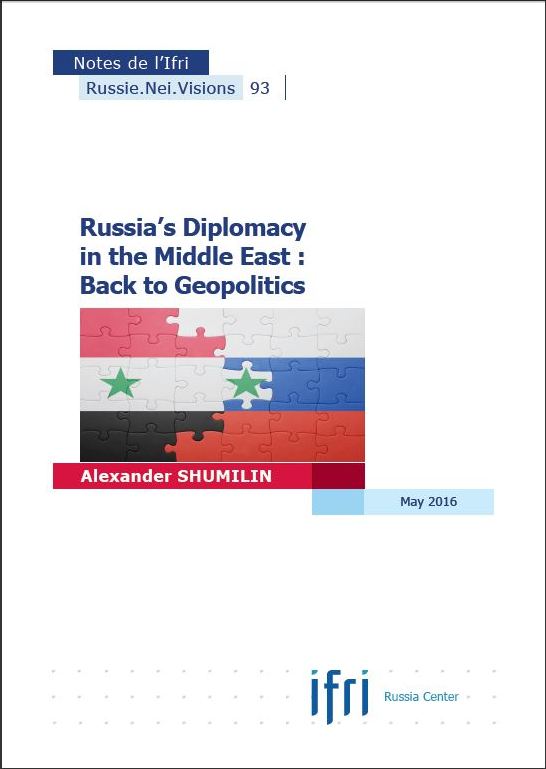Russia's Diplomacy in the Middle East: Back to Geopolitics

Moscow's approach to the Middle East has undergone real changes from Soviet times to the present day: it evolved from creating zones of influence against the background of confrontation with the West to seeing the region through the prism of mainly economic interests, and, finally, to Moscow’s current pragmatic view.
The latter, in essence, is a fusion of the previous two stages, with the Middle East serving Russia as a springboard for military and political manoeuvres in its confrontation with the West, while at the same time being seen as a potentially promising market for Russia’s modern weaponry, engineering and heavy trucks. Moscow also approaches this region today as a potential source of finance, in the form of loans and investment.
Moscow’s pragmatic approach to the Middle East is now being tested by the Syrian crisis. Russia’s military and political moves in Syria have raised a host of important questions. To what extent do they accord with Russia’s wider regional interests, and bolster its authority in the Arab (Sunni) world? What should Russia’s long-term interest in this region be, with long-term interests, by definition, not being bound to individual politicians—in Russia as well as in Middle Eastern countries? This article is an attempt to trace the evolution of Russian policy in the Middle East and to judge what effects Russia’s approach to the Syrian crisis might have on the position it occupies in the region.
Alexander Shumilin, political science PhD, is Director of the Centre for the Analysis of Middle Eastern conflicts at the Institute for US and Canadian Studies of the Russian Academy of Sciences.
Download the full analysis
This page contains only a summary of our work. If you would like to have access to all the information from our research on the subject, you can download the full version in PDF format.
Russia's Diplomacy in the Middle East: Back to Geopolitics
Related centers and programs
Discover our other research centers and programsFind out more
Discover all our analysesRussia's Asia Strategy: Bolstering the Eagle's Eastern Wing
Among Russia’s strategic priorities, Asia traditionally played a secondary role compared to the West. In the mid-1990s, then Foreign Minister Yevgeny Primakov initiated a rapprochement with China and India. Then, in 2014, deteriorating relations between Russia and the West prompted Moscow to begin its “great pivot to the East”.
Kazakhstan After the Double Shock of 2022: Political, Economic and Military Consequences
The year 2022 represented a dual shock for Kazakhstan. In January, the country faced its most severe political crisis since independence, followed in February by Russia’s full-scale invasion of Ukraine, which cast uncertainty over the borders of post-Soviet states. These consecutive crises profoundly shaped Kazakhstan’s domestic and foreign policy.

How the Russian Army Changed its Concept of War, 1993-2022
The traditional and high-intensity war that has occurred in Ukraine since Russia decided to invade raises a key issue: did post-soviet Russian strategic thought really prepare Russia for waging this war?
Russia's Nuclear Deterrence Put to the Test by the War in Ukraine
From the outset of its “special military operation” (SVO) against Ukraine on February 24, 2022, Russia, which possesses one of the world’s largest nuclear arsenals, has adopted aggressive deterrence measures and a resolutely menacing rhetorical stance.










